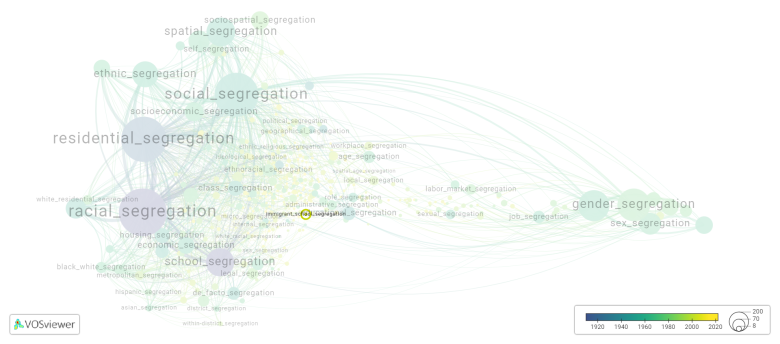Immigrant school segregation
Date and country of first publication[1]
2013
Sweden
Definition
Immigrant school segregation refers to a form of educational segregation where immigrant students are separated from native-born students or marginalized within schools due to their immigrant status or language proficiency. This segregation can happen in various ways, such as through tracking or streaming systems, separate English as a Second Language (ESL) programs, or placement in lower-performing schools.
There are several reasons why immigrant school segregation occurs. One of the primary factors is the language barrier faced by immigrant students. Many schools tend to group non-English speaking students together in ESL programs, isolating them from the rest of the student body.
Additionally, immigrant students may face discrimination or prejudice based on their cultural background, leading to social exclusion and separation within schools. This can exacerbate feelings of isolation and hinder their academic and social integration.
Research has shown that immigrant school segregation can have adverse effects on students' educational outcomes. Segregated immigrant students often have limited access to resources, experienced less academic support, and may suffer from lower expectations from teachers. These factors can result in lower academic achievement and reduced opportunities for future success.
Addressing immigrant school segregation requires systemic changes and efforts towards inclusivity and diversity. This includes providing appropriate language supports, integrating immigrant students into mainstream classrooms as early as possible, investing in teacher training on multicultural education, and fostering a school climate that promotes equality and acceptance of all students, regardless of their immigration status.
See also
Related segregation forms
Immigrant school segregation is frequently discussed in the literature with the following segregation forms:
immigrant segregation, school segregation, school socioeconomic segregation

This visualization is based on the study The Multidisciplinary Landscape of Segregation Research.
For the complete network of interrelated segregation forms, please refer to:
References
Notes
- ↑ Date and country of first publication as informed by the Scopus database (December 2023).
Immigrant school segregation appears in the following literature
Nordin M. (2013). Immigrant School Segregation in Sweden. Population Research and Policy Review, 32(3), 415-435. https://doi.org/10.1007/s11113-013-9271-z
Murillo F.J., Martínez-Garrido C. (2018). Impact of the economic crisis on school segregation in spain; [Incidencia de la crisis económica en la segregación escolar en España]. Revista de Educacion, 2018(381), 67-93and61. Ministry Education and Science.https://doi.org/10.4438/1988-592X-RE-2017-381-381
